![Mitchell, Roscoe / Ostravaska Banda: Distant Radio Transmission [VINYL] (Wide Hive) Mitchell, Roscoe / Ostravaska Banda: Distant Radio Transmission [VINYL] (Wide Hive)](https://www.teuthida.com/productImages/misc4/28558.jpg)
"Distant Radio Transmission" was originally recorded as an improvisation by Roscoe Mitchell, Craig Taborn, and Kikanju Baku in 2013, then transcribed by Stephen P. Harvey in 2016, extended for strings by John Ivers in 2017, and then fully orchestrated by Roscoe Mitchell himself in 2017; the album also includes "Noonah Trio", "Cutouts for Woodwind Quintet" and "8/8/88".
Out of Stock
Quantity in Basket: None
Log In to use our Wish List
Shipping Weight: 24.00 units
Sample The Album:
Dana Reason-piano
John C. Savage-flute
Catherine Lee-oboe
Roberta Michel-flute
Christa Robinson-oboe
Carlos Corddeio-clarinet
Sara Schoenbeck-bassoon
John Gattis-French horn
Petr Kotik-conductor
Daniel Havel-flute
Malgorzata Hlawsa-flute
Kamila Motkova-oboe
Denisa Bila-oboe
Lukas Danhel-clarinet
Carlos Cordeiro-clarinet
Stefanie Liedtke-bassoon
Jan Soukup-bassoon
Monika Cerovska-horn
Jan Garlathy-horn
Andy Kozar-trumpet
William Lang-trombone
Gergely Lukacs-tuba
Adam Maros-percussion
Miklos Hollo-percussion
Chris Nappi-percussion
Keiko Shichijo-piano
Ivana Dohnalova-harp
Conrad Harris-violin
Pauline Kim Harris-violin
Eszter Krulik-violin
Marco Cano-violin
David Danel-violin
Nikolaus Schlierf-viola
Juraj Madari-viola
Liuh Wen Ting-viola
Andrej Gal-violoncello
Matthias Lorenz-violoncello
Juho Laitinen-violoncello
Frantisek Vyrostko-contrabass
Juraj Bajus-contrabass
Thomas Buckner-baritone voice
James Fei-electronics
Roscoe Mitchell-soprano saxophone, composer
Click an artist name above to see in-stock items for that artist.
UPC: 698873034729
Label: Wide Hive
Catalog ID: WH-0348
Squidco Product Code: 28558
Format: LP
Condition: New
Released: 2020
Country: USA
Packaging: LP
Track 1 recorded in 2017.
Track 2 recorded in New York City, New York, on March 5th, 2019, by Sascha von Oertzen.
Tracks 3, 4 and 5 recorded by Seth Horvitz.
"Roscoe Mitchell With Ostravaska Banda Performing "Distant Radio Transmission", "Nonaah Trio", "Cutouts For Woodwind Quintet", And "8.8.88".
The first Piece 'Distant Radio Transmission' was first recorded as an improvisation by Roscoe Mitchell, Craig Taborn, and Kikanju Baku in 2013 and released as the third composition on Roscoe Mitchell Conversations I (Wide Hive Records WH-0317). It was then transcribed by Stephen P. Harvey in 2016 with further Transcription and Orchestration of air sounds for Strings by John Ivers in 2017 and finally then fully Orchestrated by Roscoe Mitchell in 2017. Here it is performed in 2019 by Mr Mitchell on Soprano Saxophone and the influential Czech Orchestra Ostravaska Banda.
"Nonaah Trio" was recorded in Oregon with Roscoe Mitchell on Soprano Saxophone, Dana Reason on Piano John C Savage on Flute, and Catherine Lee D. Mus on Oboe.
"Cutouts for Woodwind Quintet" was rewritten for five instruments by Mr. Mitchell in 2019 and recorded in New York before his Park Avenue Armory performance in March of 2019.
"August 8, 1988" (8.8.88): Roscoe worte three compositions for piano intended for the great concert pianist Mr. Joseph Kubera. Since this work was not subject to the constraints associated with commissioned work Roscoe spent ten years finalizing the first movement. In 1998 The Mutable Music Foundation commissioned the composition's remaining movements. "8/8/88" consists of three sections. The first movement is 35 measures long, divided asymmetrically into uncommon time signatures such as 15/8, 11/8, 17/8 etc. The second movement has 17 measures and the third movement 44 measures. Here it is performed on a Disklavier by Seth Horvitz."-Wide Hive
Also available on CD.Artist Biographies
• Show Bio for Roberta Michel "Brooklyn-based flutist Roberta Michel is dedicated to the music of our time. Praising her "extreme adventurousness," New York Concert Review said she "riveted with her performance, inspiring one to want a repeated hearing." Michel is the Co-artistic Director of Wavefield. A founding member of Duo RoMi and Cadillac Moon Ensemble, Michel has also performed with: Ecce Ensemble, Portland String Quartet, Newspeak, SEM Ensemble, Wet Ink Ensemble, Argento, Iktus, Wordless Music Orchestra, Bang on a Can All-Stars, Ensemble LPR, and Cygnus Ensemble among others. Recent venues include: Lincoln Center, Carnegie Hall, Alice Tulley Hall, Merkin Hall, The Kennedy Center, Roulette, Issue Project Room, and the Metropolitan Museum of Art. She can be heard on New Dynamic, Innova, Tzadik, and Meta Records. Michel has commissioned and premiered hundreds of new works and has worked with many notable composers of our day. Michel holds degrees from the University of Colorado at Boulder, SUNY-Purchase College, and the City University of New York Graduate Center. She is a winner of the NFA Graduate Research Competition for her dissertation on the flute music of Salvatore Sciarrino, resulting in a presentation at the 2013 National Flute Association Convention in New Orleans. Her teachers include Robert Dick, Tara O'Connor, and Alexa Still. She currently teaches at St. Francis College, Sarah Lawrence College, and at her private studio in Brooklyn." ^ Hide Bio for Roberta Michel • Show Bio for Sara Schoenbeck "Sara Schoenbeck is a bassoonist who dedicates herself to expanding the sound and role of the bassoon in the worlds of classical, contemporary notated and improvised music. The Wire magazine places her in the "tiny club of bassoon pioneers" at work in contemporary music today and the New York Times has called her "riveting, mixing textural experiments with a big, confident sound." Originally from California, Sara spent her time on the west coast freelancing in various orchestral bassoon sections such as Santa Barbara Symphony, California Symphony, Redlands, Mancini Orchestra, the Dakah Hip Hop Orchestra and touring as a member of creative music ensembles Gravitas Quartet with Wayne Horvitz, Ron Miles and Peggy Lee, Anthony Braxton's 12+1(tet) and Vinny Golia's Large Ensemble. Sara also recorded for various sound and film projects including the Matrix 2 and 3 and Spanglish. Sara now calls Brooklyn home and performs regularly with Petr Kotek's SEM ensemble, the composers group WetInk, Wordless Music Orchestra, LPR, Anthony Braxton's Tri-Centric Orchestra, Gravitas, Harris Eisenstadt's Golden State Quartet,the Lyrica Chamber Orchestra as well as performing with many other creative and inspiring musicians in the New York scene. She has performed at major venues and festivals throughout North America and Europe, including Carnegie Hall, Lincoln Center Out of Doors, the Kitchen, Iridium, Disney Hall, SXSW, New Orleans Jazz Festival, Berlin Jazz Festival, Free Music Festival in Antwerp Belgium, Biennale Musica in Venice Italy, Montreal Jazz Festival, Ottawa Jazz Festival, the Vancouver International Jazz Festival and the San Francisco Jazz Festival to name a few. Sara received her BFA from the San Francisco Conservatory of Music and MFA from the California Institute of the Arts." ^ Hide Bio for Sara Schoenbeck • Show Bio for Petr Kotik "Petr Kotik (surname originally Kotík) (born January 27, 1942, in Prague) is a composer, conductor and flutist living in New York City. He was educated in Europe (Prague Conservatory, graduated 1961; Vienna Music Academy, graduated 1966; AMU Prague, graduated 1969). From 1960 to 1963, Kotik studied composition privately with Jan Rychlík in Prague, and from 1963 to 1966 at the Music Academy in Vienna with Karl Schieske, Hans Jelinek, and Friedrich Cerha. In Prague, he founded and directed Musica Viva Pragensis (1961–64) and the QUAX Ensemble (1966–69). He came to the United States in 1969 at the invitation of Lukas Foss and Lejaren Hiller to join the Center for Creative and Performing Arts at the University at Buffalo. Since 1983, Kotik has been living in New York City. Kotik is the founder and Artistic Director of the S.E.M. Ensemble, based in New York City, which presents both chamber and orchestra concerts. Kotik has received numerous commissions and composition grants, from the National Endowment for the Arts. Kotik received a 1996 Foundation for Contemporary Arts Grants to Artists Award. He is also known for his realization of the complete musical works of Marcel Duchamp. With the S.E.M. Ensemble (which he founded in 1970), Kotik has for many years actively promoted the work of other (mostly American) composers sharing a stylistic affinity with his own work, giving frequent performances as conductor and performer with the group as well as its larger version, the Orchestra of the S.E.M. Ensemble. Kotik's music is composed in the minimal vein, with works often being of long duration and featuring slow tempi and quiet dynamics. Though his works feature innumerable gradual, slight changes, giving them a seemingly static quality, his harmonies, however, are more complex than those employed by many other American minimal composers, and his musical process is not as apparent to the listener as, for example, in the works of Steve Reich or Philip Glass. Further, Kotik does not draw as heavily on jazz or rock in his works as do many of his American colleagues (though, like Steve Reich, he is quite interested in Medieval music and often integrates Medieval compositional techniques into his works). These qualities set Kotik's music apart from American minimal trends, giving his music a decidedly European character more similar in outlook to, for example, that of Hungarian minimalists such as Zoltán Jeney, László Sáry, or László Vidovszky. Among Kotik's best known works is the six-hour opera Many Many Women (1976–78), based on a text by Gertrude Stein, for whose work, appropriately, Kotik has a special affinity. As a performer, Kotik has been an active chamber musician throughout much of his life. Until 1992, Kotik did not have the slightest interest in orchestra. That changed in 1992, when he conducted Atlas Eclipticalis by John Cage with the 86-piece Orchestra of the S.E.M. Ensemble in Tribute to John Cage at Carnegie Hall, with David Tudor as the soloist. Since then, Kotik has been organizing large-scale events, expanding the S.E.M. Ensemble into The Orchestra of the S.E.M. Ensemble, and encouraging and commissioning other composers to write for orchestra. In 1999, after conducting Gruppen by Karlheinz Stockhausen, Kotik initiated a project of compositions for 3 orchestras and commissioned the creation of new 3-orchestra works by Alvin Lucier, Christian Wolff, Martin Smolka, Phill Niblock and Olga Neuwirth. In 2001, Kotik founded the biennial Ostrava Days, an Institute and Festival of New Music in Ostrava, Czech Republic. This three-week program, one of the largest in existence, focuses on works for orchestra, with 2 resident orchestras and number of resident composers, chamber music groups and soloists. Although Kotik entered the conservatory at the age of 14, he only began composing in his late teens. This was due to his lack of interest in classical harmony, a tendency shared with other composers such as Christian Wolff and John Cage. As a composer, Kotik is essentially self-taught, in spite of his education in Western composition fundamentals in Prague and Vienna. His technique has very little to do with commonly used compositional methods. Kotik's compositional system can be compared to a game in which the use of controlled chance is balanced by conscious decision-making. The two alternate, one influencing the other. In this way Kotik triggers unpredictable processes while the work progresses in the envisioned direction. In recent years, Kotik has relied increasingly on intuitive gestures. The strategies and limitations Kotik imposes on chance, along with intuitive decisions, are at the root of his compositional process. Among Kotik's best-known compositions are Music for 3 (1964) for piano and 2 strings; Spontano (1964) for piano and ensemble (composed for Frederic Rzewski); Kontrabandt (1967), a live electronic work commissioned by the WDR Electronic Music Studio; Many Many Women (1975–78) on a text by Gertrude Stein; and Letters to Olga (1988–91) on a text by Václav Havel. His orchestra pieces include: Quiescent Form (1994–96); the one-hour-long Music in Two Movements (1998–2002); Variations for 3 Orchestras (2002–2005); and Spheres and Attraction (2005–2006) for 2 voices, string quartet and percussion on a text by R. Buckminster Fuller. "Kotik’s massive and too modestly named Fragment (1st movement of Music in Two Movements), which he conducted with his SEM Orchestra gives me sufficient pretext to voice the overdue sentiment that he is one of the best composers working today...among those writing abstract works for ensembles of unconventional instruments, Kotik stands very near the top and possibly at the top. He produced some of the most durable, though still little-known musical monuments of the post-Cage 70s, and his output has been amazingly consistent in quality.” (New York music critic and composer Kyle Gann, The Village Voice 1998). Kotik's music is available on the Labor, Dog w/a Bone and Ear-Rational labels. His father was the painter Jan Kotík. He is married to the curator and art historian Charlotta Kotik, great-granddaughter of Tomá Garrigue Masaryk, and has a son, Tomas (Tom), who is a New York-based sculptor. His other son, Jan Jakub Kotik, was born in 1972 and died of cancer in 2007." ^ Hide Bio for Petr Kotik • Show Bio for William Lang "Originally from Long Island, trombonist William Lang is an active performer, improviser, and teacher based in New York City. He can be found playing in all settings and style, from the avant-garde and classical to Broadway and indie chamber pop. He has given his signature unaccompanied recitals throughout the United States, played concertos in both America and Europe, and has also recorded with such artists as Philip Glass, David Bryne, St. Vincent, and Jonsi (of Sigur Ros.) Intensely passionate for chamber music, he regularly performs alongside his groundbreaking ensembles loadbang (an original and unique group of musicians interested in cutting edge music) and the Guidonian Hand (a trombone quartet dedicated to breaking boundaries within the brass community.) The New York Times has called his playing "fiercely, virtuosic" and the Boston Globe has hailed him for his "superb performance" in past solo works." ^ Hide Bio for William Lang • Show Bio for Keiko Shichijo "Pianist & fortepianist Keiko Shichijo is a special voice in both the Classical and new music worlds. Her traditional Japanese sensibilities combined with her knowledge of European historical performance practices shape her unique vision, and this is reflected in her feeling for the music, the instruments and the story behind them. Hailing from Japan and residing in the Netherlands for more than a decade, she is active around the world playing both solo and chamber music. She is a prizewinner in many international competitions, including twice the International Early Music Competition (solo and duo) in Brugge, Belgium, the International Early Music Competition "A Tre" in Trossingen in Germany and the Minkoff Prize from the music publisher, Edition Minkoff, and has performed in many international festivals such as the festivals Printemps Des Arts (France), Utrecht Oude Muziek Festival (Holland), MA Festival (Belgium), La Folle Journée Tokyo (Japan). In 2012, the Hamamatsu Museum of Musical Instruments in Japan released her first fortepiano solo CD of works by Schubert. Her second solo CD "6 Dances by Komitas Vardapet", released in 2016, earned unanimous praise in the international press and was featured on the national Dutch TV program Vrije Geluiden. Keiko Shichijo has a violin/fortepiano duo with renowned violinist Cecilia Bernardini which performs regularly throughout Europe. As a specialist in contemporary music Keiko has worked with many composers, including Helmut Lachenmann, Tom Johnson, Johannes Kalitzke, Jürg Frey, Roscoe Mitchell en Bernhard Lang. Recently she premiered a concerto with the Janacek Philharmonic." ^ Hide Bio for Keiko Shichijo • Show Bio for Conrad Harris "Violinist Conrad Harris has performed new works for violin at Ostrava Days, Darmstadt Ferrienkürse für Neue Musik, Gulbenkian Encounters of New Music, Radio France, Warsaw Autumn, and New York's Sonic Boom Festival. In addition to being a member of the FLUX Quartet and violin duo String Noise, he is concertmaster/soloist with the S.E.M. Orchestra, Ostravská Banda, STX Ensemble, Wordless Music Orchestra and Ensemble LPR. He has performed and recorded with such artists as Elliott Sharp, Robert Ashley, Alvin Lucier, David Behrman "Blue" Gene Tyranny, Jean-Claude Risset, Rohan de Saram and Tiny Tim. His recordings of the Lejaren Hiller Violin Sonatas with pianist, Joseph Kubera will be released in 2018 on New World Records. He has also recorded for Asphodel, Vandenburg, CRI, and Vinyl Retentive Records." ^ Hide Bio for Conrad Harris • Show Bio for Pauline Kim Harris "Pauline Kim Harris, aka PK or Pauline Kim is a Grammy™-nominated violinist and composer. The youngest student to have ever been accepted into the studio of legendary violinist Jascha Heifetz, she has since appeared throughout the US, Canada, Europe, Asia and Australia as soloist, collaborator and music director. Currently known for her work with classical avant-punk violin duo String Noise with her husband, Conrad Harris of the FLUX Quartet, she has toured extensively with Orpheus Chamber Orchestra, has been a long standing member of the SEM Ensemble and OstravskaBanda in the Czech Republic and has been a guest artist with leading new music ensembles such as Talea, ICE, Alarm Will Sound, Argento, TRANSIT, Object Collection, Glass Farm Ensemble, Ensemble LPR, Wordless Music and Ensemble Signal in New York City. Committed to the idea that music is one continuous lineage of expression and demonstration of time, Pauline has been dismantling the norm of expectation of a typical classical violinist by performing in concerts presented in museums, churches, nightclubs, out of doors, rooftops, pop-ups to major stages with an openness to genre. As a composer, Pauline searches for a tactile connection between memory and sound. Her music creates a multi-dimensional sonic matrix through composition, transporting the listener to an alternate co-existence. She introduces an environment that alters the listener's emotional identity to what they are experiencing. Active in the experimental music scene, her work extends into interdisciplinary worlds, crossing boundaries and connecting visual art, electronics, media, film and dance to music. She has premiered and recorded works by Alvin Lucier, John Zorn, Philip Glass, Steve Reich, George Lewis, David Lang, Du Yun, Annie Gosfield and more. Crossing over into the rock and pop worlds, she has played and recorded as collaborator and leader for Jeff Beck, Lenny Kravitz, David Byrne (Talking Heads), Jonny Greenwood (Radiohead), Greg Saunier (Deerhoof), Tyondai Braxton, Max Richter, Gordon Gano (Violent Femmes), Jon Brion, Savion Glover, Gabriel Kahane, Mica Levi (Micachu and the Shapes), Jay Z/Beyoncé, Adele, Peter Gabriel, Somi, Jane Siberry, Macy Grey, Laurie Anderson, Björk, Roscoe Mitchell, Max Richter, Rostam Batmanglij (Vampire Weekend), Michael Leonhart, Placido Domingo, Joni Mitchell, John Cale (Velvet Underground), Billy Martin (Medeski, Martin & Wood), Jason Moran, Dan Romer, William Basinski, Jherek Bischoff, Stars of the Lid, Goldfrapp, Chilly Gonzales, Louis Michot (Lost Bayou Ramblers), Kishi Bashi, Nico Muhly & Doveman, Nu Deco Ensemble and with Jónsi Birgisson (Sigur Ros) in the fall of 2019. Pauline was the first Music Director for the Bill T. Jones/ Arnie Zane Dance Company and has been the featured artist for choreographers David Parker, Kora Radella and Pam Tanowitz. She has performed at MASS MoCA, MoMA, the Metropolitan Museum, Museum of Contemporary Art in Chicago, iMOCA, Baryshnikov Arts Center, Guggenheim, The Drawing Center, Paula Cooper Gallery, Barnes Foundation, Brooklyn Museum and Noguchi Museum to name some. She has appeared at Lincoln Center Out of Doors, Ghent Jazz Festival, North Sea Jazz Festival, Lincoln Center Festival, White Light Festival, Big Ears Festival, Liquid Music, Jacob's Pillow, Barbican, Miller Theater, Baryshnikov Center, DiMenna Classical Center, Symphony Space, Joyce Theater, Roulette, Issue Project Room, BAM, Sydney Opera House, Library of Congress, FringeArts, Lincoln Center, and Carnegie Hall. Pauline moved to NYC at the age of 15 to study with Dorothy DeLay at the Juilliard School and is currently a sought after mentor to dance and drama students through the Juilliard Mentoring Program." ^ Hide Bio for Pauline Kim Harris • Show Bio for Matthias Lorenz Matthias Lorenz is a German cellist, a member of Neues Leipziger Streichquartett. He has also recorded with Euphorium_freakestra, and Ostravaska Banda. ^ Hide Bio for Matthias Lorenz • Show Bio for Thomas Buckner "For decades, baritone Thomas Buckner has dedicated himself to the promotion and performance of new and improvised music, collaborating with a host of new music luminaries including Robert Ashley, Noah Creshevsky, Tom Hamilton, Earl Howard, Matthias Kaul, Leroy Jenkins, Bun Ching Lam, Annea Lockwood, Roscoe Mitchell, Phill Niblock, Wadada Leo Smith, Chinary Ung, Christian Wolff and many others. Buckner has appeared at Lincoln Center, Carnegie Hall, the Herbst Theatre, the Art Institute of Chicago, the Berlin Spring Festival, the Huddersfield Contemporary Music Festival, the Prague Spring Festival, and the Angelica Festival of Bologna. He is featured on over 50 recordings, including 6 solo albums, the most recent being "New Music for Baritone & Chamber Ensemble," which includes works by Annea Lockwood, Tania Leon, and Petr Kotik. Buckner also appears in the CD/DVD "Kirili et le Nymphéas (Hommage à Monet)" filmed at the Musée de l'Orangerie, Paris, which houses the Monet's celebrated Water lilies murals. For the past thirty years Thomas Buckner has curated the Interpretations series in New York City, and continues to produce recordings on the Mutable Music label, introducing current artists and repertoire, as well as presenting important historic material, previously unavailable in CD format." ^ Hide Bio for Thomas Buckner • Show Bio for James Fei "James Fei (b. Taipei, Taiwan) moved to the US in 1992 to study electrical engineering. He has since been active as a composer and performer on saxophones and live electronics. Works by Fei have been performed by the Bang on a Can All-Stars, Orchestra of the S.E.M. Ensemble, MATA Micro Orchestra and Noord-Hollands Philharmonisch Orkest. Recordings can be found on Leo Records, Improvised Music from Japan, CRI, Krabbesholm and Organized Sound. Compositions for Fei's own ensemble of four alto saxophones focus on physical processes of saliva, fatigue, reeds crippled by cuts and the threshold of audible sound production, while his sound installations and performance on live electronics often focus on electronic and acoustic feedback. Fei received the Grants for Artists Award from the Foundation for Contemporary Arts in 2014. Fei has taught at Mills College in Oakland since 2006, where he is Associate Professor of Electronic Arts. www.jamesfei.com Works by Fei have been performed at Merkin Hall, The Kitchen, Knitting Factory, Tonic, Roulette, Experimental Intermedia, MATA Festival, Engine 27, The Stone, Issue Project Room (all New York), SFMoma, Empty Bottle (Chicago), Akedemie der Künste (Berlin), Beurs van Berlage (Amsterdam), Steim (Amsterdam), Overtoom 301 (Amsterdam), JFC Club (St Petersberg), Super Deluxe (Tokyo), Shinjuku Pit Inn (Tokyo), Osaka Arts-Aporia, Bridge (Osaka), and National Recital Hall (Taiwan). Fei has lectured at Columbia University, Wesleyan University,The Art Institute of Chicago, Taipei Normal University,Taipei National University of the Arts, San Francisco Conservatory of Music, Theremin Center (Moscow), Pro Arte (St. Petersberg), Krabbesholm (Denmark), IAMAS (Ogaki, Japan) and NUAS (Nogoya, Japan)." ^ Hide Bio for James Fei • Show Bio for Roscoe Mitchell "Roscoe Mitchell (born August 3, 1940) is an American composer, jazz instrumentalist, and educator, known for being "a technically superb - if idiosyncratic - saxophonist." The Penguin Guide to Jazz described him as "one of the key figures" in avant-garde jazz; All About Jazz states that he has been "at the forefront of modern music" for the past 35 years. Critic Jon Pareles in The New York Times has mentioned that Mitchell "qualifies as an iconoclast." In addition to his own work as a bandleader, Mitchell is known for cofounding the Art Ensemble of Chicago and the Association for the Advancement of Creative Musicians (AACM). Mitchell was born in Chicago, Illinois. He also grew up in the Chicago area, where he played saxophone and clarinet at around age twelve. His family was always involved in music with many different styles playing in the house when he was a child as well as having a secular music background. His brother, Norman, in particular was the one who introduced Mitchell to jazz. While attending Englewood High School in Chicago, he furthered his study of the clarinet. In the 1950s, he joined the United States Army, during which time he was stationed in Heidelberg, Germany and played in a band with fellow saxophonists Albert Ayler and Rubin Cooper, the latter of which Mitchell commented "took me under his wing and taught me a lot of stuff." He also studied under the first clarinetist of the Heidelberg Symphony while in Germany. Mitchell returned to the United States in the early 1960s, relocated to the Chicago area, and performed in a band with Wilson Junior College undergraduates Malachi Favors (bass), Joseph Jarman, Henry Threadgill, and Anthony Braxton (all saxophonists). Mitchell also studied with Muhal Richard Abrams and played in his band, the Muhal Richard Abrams' Experimental Band, starting in 1961. In 1965, Mitchell was one of the first members of the non-profit organization Association for the Advancement of Creative Musicians (AACM) along with Jodie Christian (piano), Steve McCall (drums), and Phil Cohran (composer). The following year Mitchell, Lester Bowie (trumpet), Kalaparusha Maurice McIntyre (tenor saxophone), Favors, Lester Lashley (trombone), and Alvin Fielder (drums), recorded their first studio album, Sound. The album was "a departure from the more extroverted work of the New York-based free jazz players" due in part to the band recording with "unorthodox devices" such as toys and bicycle horns. From 1967 Mitchell, Bowie, Favors and, on occasion, Jarman performed as the Roscoe Mitchell Art Ensemble, then the Art Ensemble, and finally in 1969 were billed as the Art Ensemble of Chicago. The group included Phillip Wilson on drums for short span before he joined Paul Butterfield's band. The group lived and performed in Europe from 1969 to 1971, though they arrived without any percussionist after Wilson left. To fill the void, Mitchell commented that they "evolved into doing percussion ourselves." The band did eventually get a percussionist, Don Moye, who Mitchell had played with before and was living in Europe at that time. For performances, the band often wore brilliant African costumes and painted their faces. The Art Ensemble of Chicago have been described as becoming "possibly the most highly acclaimed jazz band" in the 1970s and 1980s. Mitchell and the others returned to the States in 1971. After having been back in Chicago for three years, Mitchell then established the Creative Arts Collective (CAC) in 1974 that had a similar musical aesthetic to the AACM. The group was based in East Lansing, Michigan and frequently performed in auditoriums at Michigan State University. Mitchell also formed the Sound Ensemble in the early 1970s, an "outgrowth of the CAC" in his words, that consisted mainly of Mitchell, Hugh Ragin, Jaribu Shahid, Tani Tabbal, and Spencer Barefield. In the 1990s, Mitchell started to experiment in classical music with such composers/artists such as Pauline Oliveros, Thomas Buckner, and Borah Bergman, the latter two of which formed a trio with Mitchell called Trio Space. Buckner was also part of another group with Mitchell and Gerald Oshita called Space in the late 1990s. He then conceived the Note Factory in 1992 with various old and new collaborators as another evolution of the Sound Ensemble. He lived in the area of Madison, Wisconsin and performed with a re-assembled Art Ensemble of Chicago. In 1999, the band was hit hard with the death of Bowie, but Mitchell fought off the urge to recast his position in the group, stating simply "You can't do that" in an interview with Allaboutjazz.com editor-in-chief Fred Jung. The band continued on despite the loss. Mitchell has made a point of working with younger musicians in various ensembles and combinations, many of whom were not yet born when the first Art Ensemble recordings were made. Mainly from Chicago, these players include trumpeter Corey Wilkes, bassist Karl E. H. Seigfried, and drummer Isaiah Spencer. In 2007, Mitchell was named Darius Milhaud Chair of Composition at Mills College in Oakland, California, where he currently lives. Mitchell was chosen by Jeff Mangum of Neutral Milk Hotel to perform at the All Tomorrow's Parties festival in March 2012 in Minehead, England." ^ Hide Bio for Roscoe Mitchell
4/2/2025
Have a better biography or biography source? Please Contact Us so that we can update this biography.
4/2/2025
Have a better biography or biography source? Please Contact Us so that we can update this biography.
4/2/2025
Have a better biography or biography source? Please Contact Us so that we can update this biography.
4/2/2025
Have a better biography or biography source? Please Contact Us so that we can update this biography.
4/2/2025
Have a better biography or biography source? Please Contact Us so that we can update this biography.
4/2/2025
Have a better biography or biography source? Please Contact Us so that we can update this biography.
4/2/2025
Have a better biography or biography source? Please Contact Us so that we can update this biography.
4/2/2025
Have a better biography or biography source? Please Contact Us so that we can update this biography.
4/2/2025
Have a better biography or biography source? Please Contact Us so that we can update this biography.
4/2/2025
Have a better biography or biography source? Please Contact Us so that we can update this biography.
4/2/2025
Have a better biography or biography source? Please Contact Us so that we can update this biography.
Track Listing:
SIDE A
1. Distant Radio Transmission 19:56
SIDE B
1. Nonaah Trio 14:45
3. 8.8.88, Pt. 1 4:20
3. 8.8.88, Pt. 2 1:10
4. 8.8.88, Pt. 3 3:18
Vinyl Recordings
Improvised Music
Free Improvisation
Jazz
Chicago Jazz & Improvisation
Large Ensembles
Electro-Acoustic
Electro-Acoustic Improv
Large Ensembles
Trio Recordings
Solo Artist Recordings
Piano & Keyboards
Staff Picks & Recommended Items
Search for other titles on the label:
Wide Hive.


![Mitchell, Roscoe / Ostravaska Banda: Distant Radio Transmission [VINYL] (Wide Hive) Mitchell, Roscoe / Ostravaska Banda: Distant Radio Transmission [VINYL] (Wide Hive)](https://www.teuthida.com/productImages/full/28558.Full.jpg)
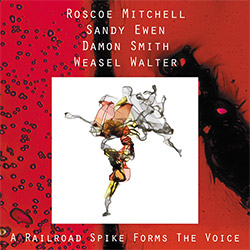
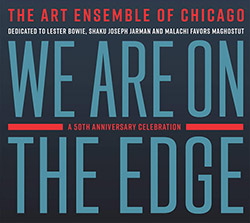

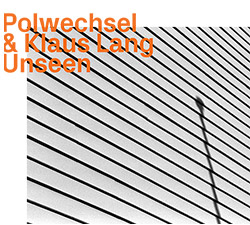

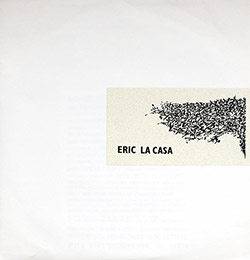

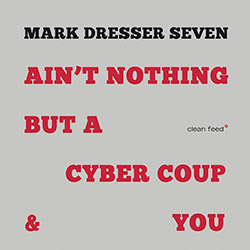

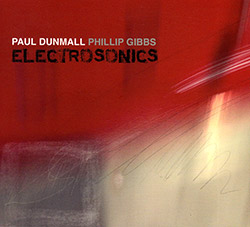



![Niblock, Phill / Anna Clementi / Thomas Stern: Zound Delta 2 [VINYL]](https://www.teuthida.com/productImages/misc4/34623.jpg)
![Yoko, Ono / The Great Learning Orchestra: Selected Recordings From Grapefruit [2 CDs]](https://www.teuthida.com/productImages/misc4/35841.jpg)

![Brotzmann, Peter / John Edwards / Steve Noble / Jason Adasiewicz: The Quartet [2 CDs]](https://www.teuthida.com/productImages/misc4/35975.jpg)
![Brotzmann, Peter / John Edwards / Steve Noble / Jason Adasiewicz: The Quartet [VINYL 2 LPs]](https://www.teuthida.com/productImages/misc4/35976.jpg)
![Thomas, Pat: The Solar Model of Ibn-Al Shatir [VINYL]](https://www.teuthida.com/productImages/misc4/36044.jpg)
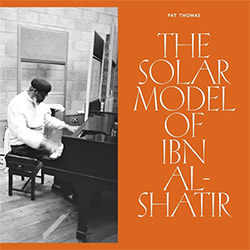



![Rodrigues, Ernesto / Nuno Torres / Guilherme Rodrigues: Whispers In The Moonlight - In Seven Movements [2CDs]](https://www.teuthida.com/productImages/misc4/35765.jpg)



![Cocks, Laura: FATHM [VINYL]](https://www.teuthida.com/productImages/misc4/36055.jpg)










![Ackerley / Prymek / Turner: All Hope With Sleeping Minds [CASSETTE]](https://www.teuthida.com/productImages/misc4/35950.jpg)
![Myers, David Lee : Tin Drop Tear [BOOK w/ DOWNLOAD]](https://www.teuthida.com/productImages/misc4/36030.jpg)




![Schindler, Udo / Sandy Ewen / Damon Smith: Munich Sound Studies Vols. 4, 5 & 6 [3 CDs]](https://www.teuthida.com/productImages/misc4/35966.jpg)
![Turbulence Orchestra & Sub-Units: Smear Out the Difficulties (Double Live) [2 CDs]](https://www.teuthida.com/productImages/misc4/36048.jpg)


![Perelman, Ivo / Tyshawn Sorey: Paralell Aesthetics [2 CDs]](https://www.teuthida.com/productImages/misc4/35871.jpg)


![Sjostrom, Harri: SoundScapes #4 Festival Berlin 2023 [3 CDs]](https://www.teuthida.com/productImages/misc4/35874.jpg)



![Glenn, Jordan: Flustered [CASSETTE]](https://www.teuthida.com/productImages/misc4/35948.jpg)










![Olencki, Weston : Pearls Ground Down To Powder [VINYL]](https://www.teuthida.com/productImages/misc4/35956.jpg)
![Myers, David Lee: Oculus [2CDs]](https://www.teuthida.com/productImages/misc4/35857.jpg)


![dustsceawung: dustsceawung [CASSETTE w/ Download]](https://www.teuthida.com/productImages/misc4/35753.jpg)




![Halls of the Machine: Atmospheres For Lovers And Sleepers [CASSETTE w/ DOWNLOAD]](https://www.teuthida.com/productImages/misc4/35806.jpg)



![AHC (Alexander Cooper): Lase [2 CDs]](https://www.teuthida.com/productImages/misc4/35754.jpg)



![Fagaschinski, Kai / Yan Jun : Graveyard Processions [VINYL w/ DOWNLOAD]](https://www.teuthida.com/productImages/misc4/35474.jpg)









![Zorn, John / JACK Quartet: The Complete String Quartets [2 CDs]](https://www.teuthida.com/productImages/misc4/35609.jpg)

![Lonsdale, Eden: Dawnings [2 CDs]](https://www.teuthida.com/productImages/misc4/35480.jpg)







![Sanna, Claudio: Compositori Sardi Contemporanei II [2 CDs]](https://www.teuthida.com/productImages/misc4/35317.jpg)







![Zurria, Manuel: Fame di Vento [3 CDs]](https://www.teuthida.com/productImages/misc4/35167.jpg)


![Electric Bird Noise / Derek Roddy: 8-10-22 [CD EP]](https://www.teuthida.com/productImages/misc4/35970.jpg)








![Elephant9 : Mythical River [VINYL]](https://www.teuthida.com/productImages/misc4/34624.jpg)



![Elephant9 with Terje Rypdal: Catching Fire [VINYL 2 LPs]](https://www.teuthida.com/productImages/misc4/35355.jpg)
![Deerlady (Obomsawin, Mali / Magdalena Abrego): Greatest Hits [VINYL]](https://www.teuthida.com/productImages/misc4/34876.jpg)







![Surplus 1980: Illusion of Consistency [CD]](https://www.teuthida.com/productImages/misc4/35069.jpg)
![Staiano, Moe: Away Towards the Light [VINYL + DOWNLOAD]](https://www.teuthida.com/productImages/misc4/35037.jpg)



![Caveira (Gomes / Sousa / Abras / Ferrandini): Ficar Vivo [VINYL]](https://www.teuthida.com/productImages/misc4/34643.jpg)
![Coley, Byron: Dating Tips for Touring Bands [VINYL]](https://www.teuthida.com/productImages/misc4/17906.jpg)

![Lost Kisses: My Life is Sad & Funny [DVD]](https://www.teuthida.com/productImages/misc4/lostKissesDVD.jpg)